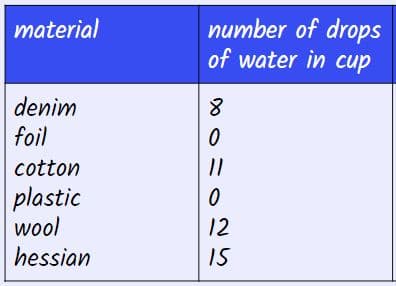Myths about teaching can hold you back
- Year 1
Waterproof materials: review
I can find out about how famous scientists investigate waterproof materials.
- Year 1
Waterproof materials: review
I can find out about how famous scientists investigate waterproof materials.
These resources were made for remote use during the pandemic, not classroom teaching.
Switch to our new teaching resources now - designed by teachers and leading subject experts, and tested in classrooms.
Lesson details
Key learning points
- Scientists think about why different materials are waterproof and not waterproof and how this can help us.
- The results of an investigation can tell us which materials are waterproof and not waterproof.
- Famous scientists in the past have helped us to learn about waterproof materials.
- Scientists today and in the future help us to learn more about waterproof materials.
- Materials can be made waterproof by adding an extra waterproof covering or coating.
Keywords
Scientist - A scientist is a person who learns about science and carries out investigations.
Material - A material is what an object is made from. An object can be made from more than one material.
Waterproof - A waterproof material does not allow any water to pass through it.
Properties - The describing words we use for a material are called its properties.
Results - The result of a test or enquiry is what happened or what was found out.
Common misconception
In comparing the extent of a given property in two materials children may rely purely on observation rather than on active testing.
Opportunity to use real-life results to answer questions and draw conclusions.
To help you plan your year 1 science lesson on: Waterproof materials: review, download all teaching resources for free and adapt to suit your pupils' needs...
To help you plan your year 1 science lesson on: Waterproof materials: review, download all teaching resources for free and adapt to suit your pupils' needs.
The starter quiz will activate and check your pupils' prior knowledge, with versions available both with and without answers in PDF format.
We use learning cycles to break down learning into key concepts or ideas linked to the learning outcome. Each learning cycle features explanations with checks for understanding and practice tasks with feedback. All of this is found in our slide decks, ready for you to download and edit. The practice tasks are also available as printable worksheets and some lessons have additional materials with extra material you might need for teaching the lesson.
The assessment exit quiz will test your pupils' understanding of the key learning points.
Our video is a tool for planning, showing how other teachers might teach the lesson, offering helpful tips, modelled explanations and inspiration for your own delivery in the classroom. Plus, you can set it as homework or revision for pupils and keep their learning on track by sharing an online pupil version of this lesson.
Explore more key stage 1 science lessons from the Everyday materials unit, dive into the full primary science curriculum, or learn more about lesson planning.

Equipment
See additional materials for further guidance: material for hat making, paper, PVA glue, wax crayons, cotton/old shirt material, transparent plastic cups, rubber bands, cotton wool balls.
Content guidance
- Exploration of objects
Supervision
Adult supervision recommended
Licence
Prior knowledge starter quiz
6 Questions
Q1.Which material is this bottle made from?

Q2.Which of these are properties of materials?
Q3.Which of these statements is true?
Q4.If a material is waterproof ...
Q5.Which of these objects needs to be waterproof?
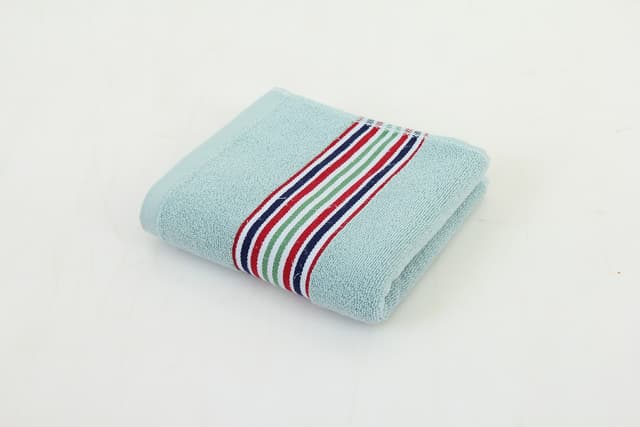
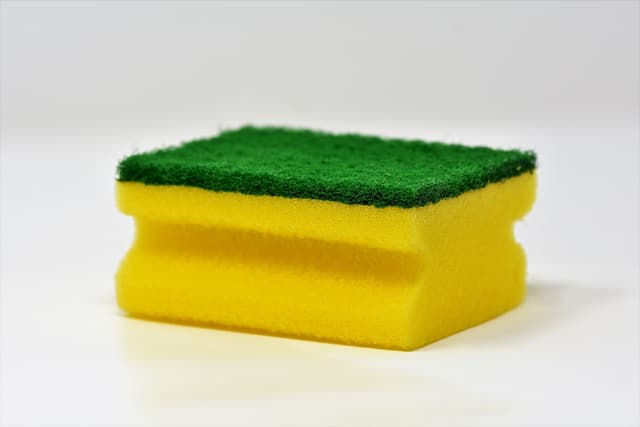
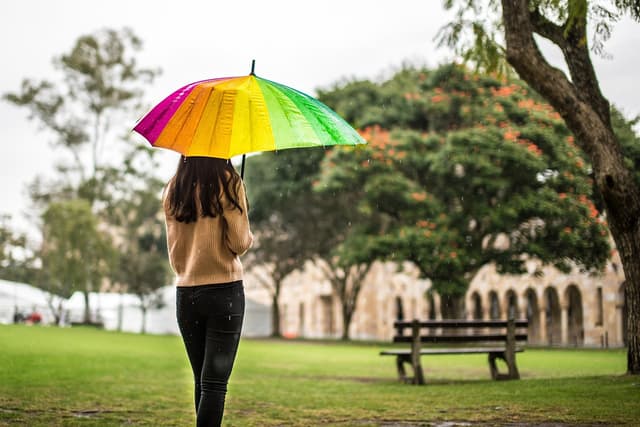
Q6.When scientists want to find out which materials are waterproof ...
Assessment exit quiz
6 Questions
Q1.Which of these objects is made from a waterproof material?
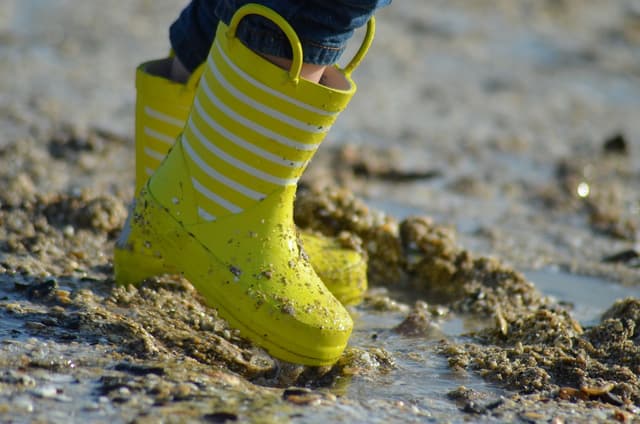

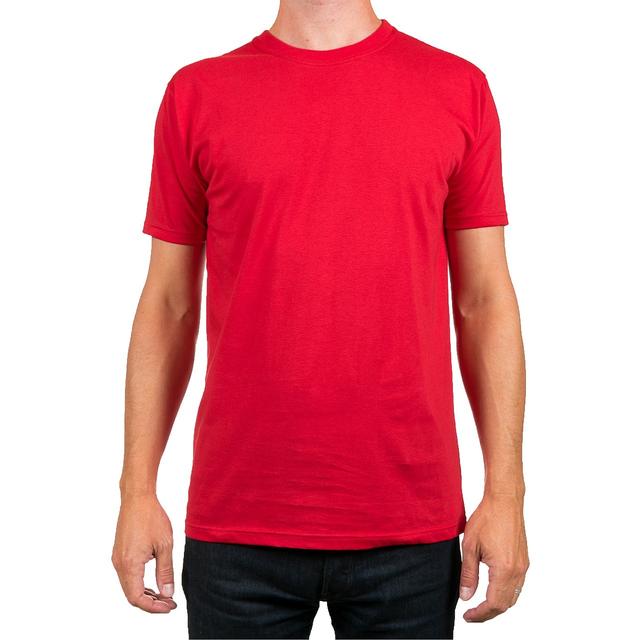
Q2.Why are waterproof materials helpful?
Q3. like Charles Macintosh in the past as well as people today and in the future help us to learn more about waterproof materials.
Q4.What did Charles Macintosh invent?
Q5.How can materials be made waterproof?
Q6.What do these investigation results show us?
